Max Bruch
Romance en Fa majeur op. 85
Ce vrai joyau romantique fait depuis longtemps partie du répertoire dans la version originale pour alto, qu’il soit encore en formation ou concertiste. Notre édition se réfère pour la première fois à toutes les sources significatives et inclut, comme la première édition, la réduction pour piano, d’exécution facile, réalisée par le compositeur. Parallèlement à la formation originale, cette version pour violon, arrangée par le compositeur, est parue en 1911. Notre nouvelle édition met enfin cette autre version à la disposition des instrumentistes. Ernst Schliephake, violoniste chevronné, a ajouté doigtés et coups d’archet. À n’en pas douter, un enrichissement pour le répertoire violonistique!
CONTENU/DÉTAILS
CONCERNANT LE COMPOSITEUR
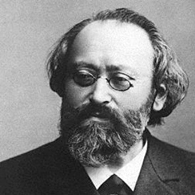
Max Bruch
Compositeur allemand de l’ère romantique. Ses œuvres esquissent au plan stylistique une esthétique opposée à celle de la Nouvelle école allemande. Ses concertos pour violons occupent une place importante. Il composa en outre de nombreuses œuvres chorales, cantates, oratorios, lieder, œuvres pour la scène ainsi que des œuvres orchestrales.
| 1838 | Né le 6 janvier à Cologne. Sa mère, cantatrice, lui donne ses premières leçons de musique. |
| à partir de 1849 | Il étudie la musique auprès de Heinrich Carl Breidenstein. Un grand nombre de compositions datent de son enfance. |
| 1852 | Boursier de la Fondation Mozart à Francfort. |
| 1853–57 | Études de composition auprès de Ferdinand Hiller à Cologne. |
| 1858 | Création à Cologne de l’opéra «Scherz, List und Rache» op. 1. |
| à partir de 1858 | Il fréquente à Leipzig le cercle de Mendelssohn. |
| 1862 | Déménagement à Mannheim. |
| 1863 | Création à Mannheim de l’opéra «Die Loreley» op. 16. |
| 1865–67 | Directeur de la musique à Coblence. Composition du 1er Concerto pour violon en Sol mineur op. 26. |
| 1867–70 | Maître de chapelle à la cour de Sondershausen. Composition de la 1re Symphonie en Mi bémol majeur op. 28 dédiée à Johannes Brahms et de la 2e Symphonie en Fa mineur op. 36 (les deux en 1870). |
| 1870–78 | Compositeur indépendant à Berlin et à Bonn. Composition de l’oratorio «Odysseus» op. 41 (1871/72). |
| 1879/80 | Composition de la Fantaisie en Mi bémol majeur pour violon et orchestre op. 46 (Fantaisie écossaise). |
| 1880–83 | Directeur de la Philharmonic Society à Liverpool. |
| à partir de 1883 | Voyage aux USA. Directeur de l’Orchesterverein de Breslau. |
| à partir de 1891 | Directeur de la classe d’excellence de composition à l’Académie des Beaux-Arts de Berlin. Docteur honoris causa de l’université de Cambridge (1893) et membre correspondant de l’Académie des Beaux-Arts (1898). |
| 1907 | Vice-président de l’Académie des Beaux-Arts de Berlin. |
| 1920 | Meurt le 2 octobre à Berlin. |
About the Authors

Norbert Gertsch (Editeur, Préface)
Dr. Norbert Gertsch, born in 1967 in Rheinkamp/Moers, studied piano solo at the Mozarteum in Salzburg and read musicology and philosophy at the Paris Lodron University in Salzburg and the Ruperto Carola University Heidelberg on a scholarship from the “Studienstiftung des Deutschen Volkes”. In 1996 he wrote his doctoral thesis on Ludwig van Beethoven’s Missa solemnis (as part of the New Complete Edition) under Ludwig Finscher.
In the following year, he began to work at G. Henle Publishers, initially as an editor for electronic publishing. After working on a two-year project (1999–2000) sponsored by the German Research Foundation (DFG) preparing a new Beethoven Catalogue of Works, he became a scholarly editor at G. Henle Publishers. In 2003 he became Editor-in-Chief, in 2009 Deputy Managing Director and Head of Publishing. As of 1 January 2024, the Executive Board of the Günter Henle Foundation has appointed Dr. Norbert Gertsch, as the new managing director, succeeding Dr. Wolf-Dieter Seiffert.
Gertsch has published many Urtext editions for G. Henle Publishers, including volumes for a new edition of Beethoven’s Piano Sonatas together with Murray Perahia.
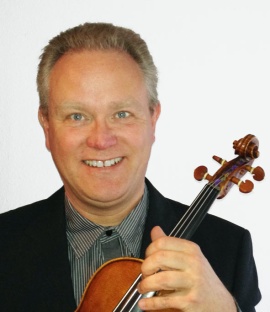
Ernst Schliephake (Doigtés violon)
Ernst Schliephake was born in 1962. At the age of seven he was already a state prize-winner in the category violin at the young people’s music competition “Jugend musiziert”; the following year he achieved the same result with the clarinet. He was taught by Klaus Speicher and Heinz Hepp (violin and clarinet) and studied the violin in 1979 with Prof. Lukas David in Detmold, working as his assistant between 1983 and 1985. Aside from playing the violin in Tibor Varga’s chamber orchestra, he also played many chamber concerts with him, predominantly as a clarinettist. A master-class with Ruggiero Ricci 1981, led to an intensive collaboration and friendship.
Since 1986 he has been a violinist with the Düsseldorf Symphony Orchestra, the Bavarian Radio Symphony Orchestra and the Bavarian State Opera, and since 1989 has been the associate concertmaster with the Munich Symphony Orchestra.
Informations sur la sécurité du produit

G. Henle Verlag
Vous trouverez ici des informations sur le fabricant du produit.G. Henle Verlag e.K.
Forstenrieder Allee 122
81476 München
Allemagne
info@henle.de
www.henle.com
recommandations
autogenerated_cross_selling
Autres éditions de ce titre
Autres éditions de ce titre


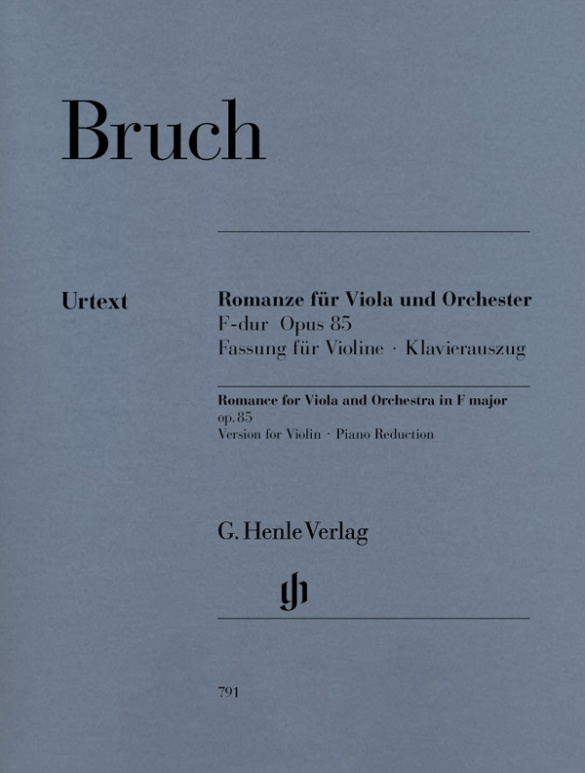
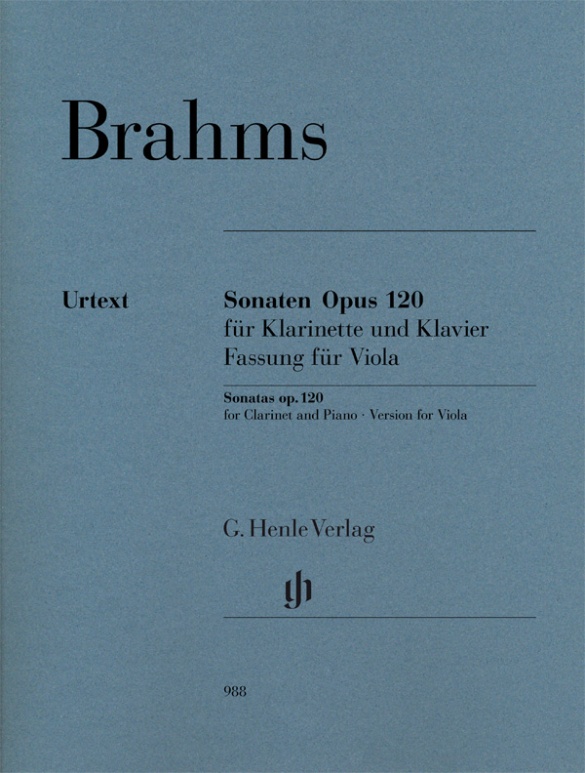

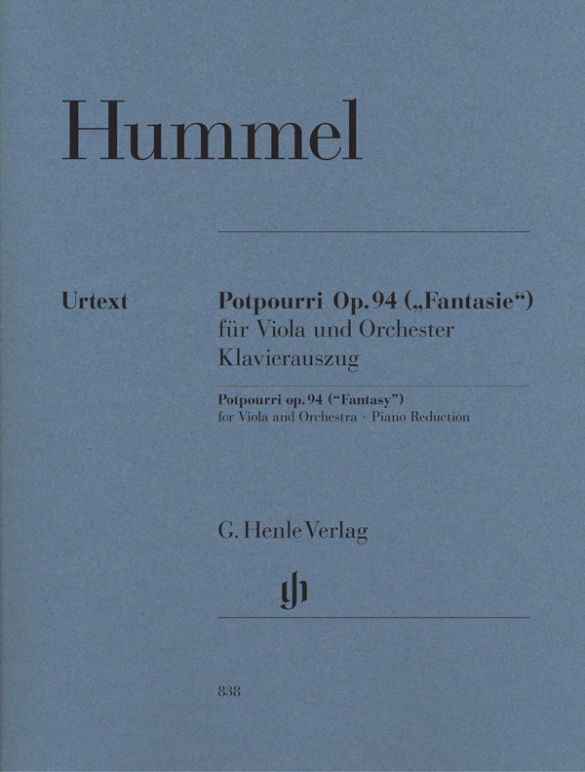
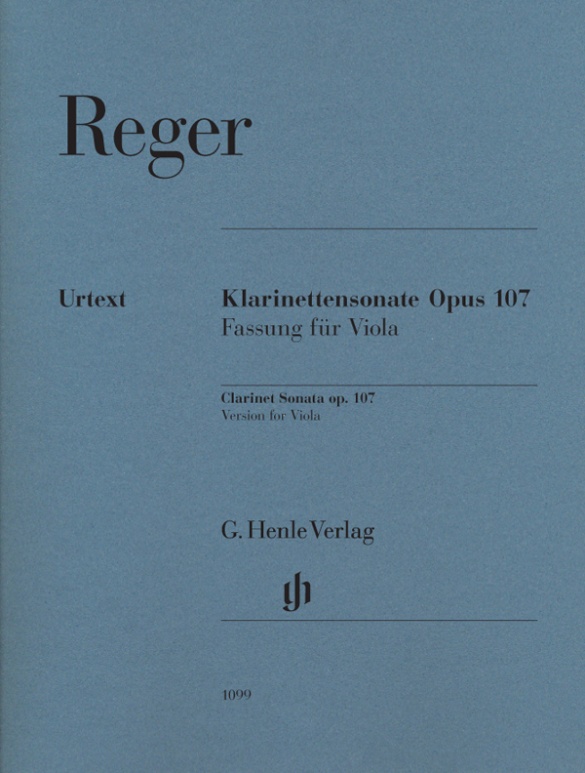
Matériel non annoté sur demande